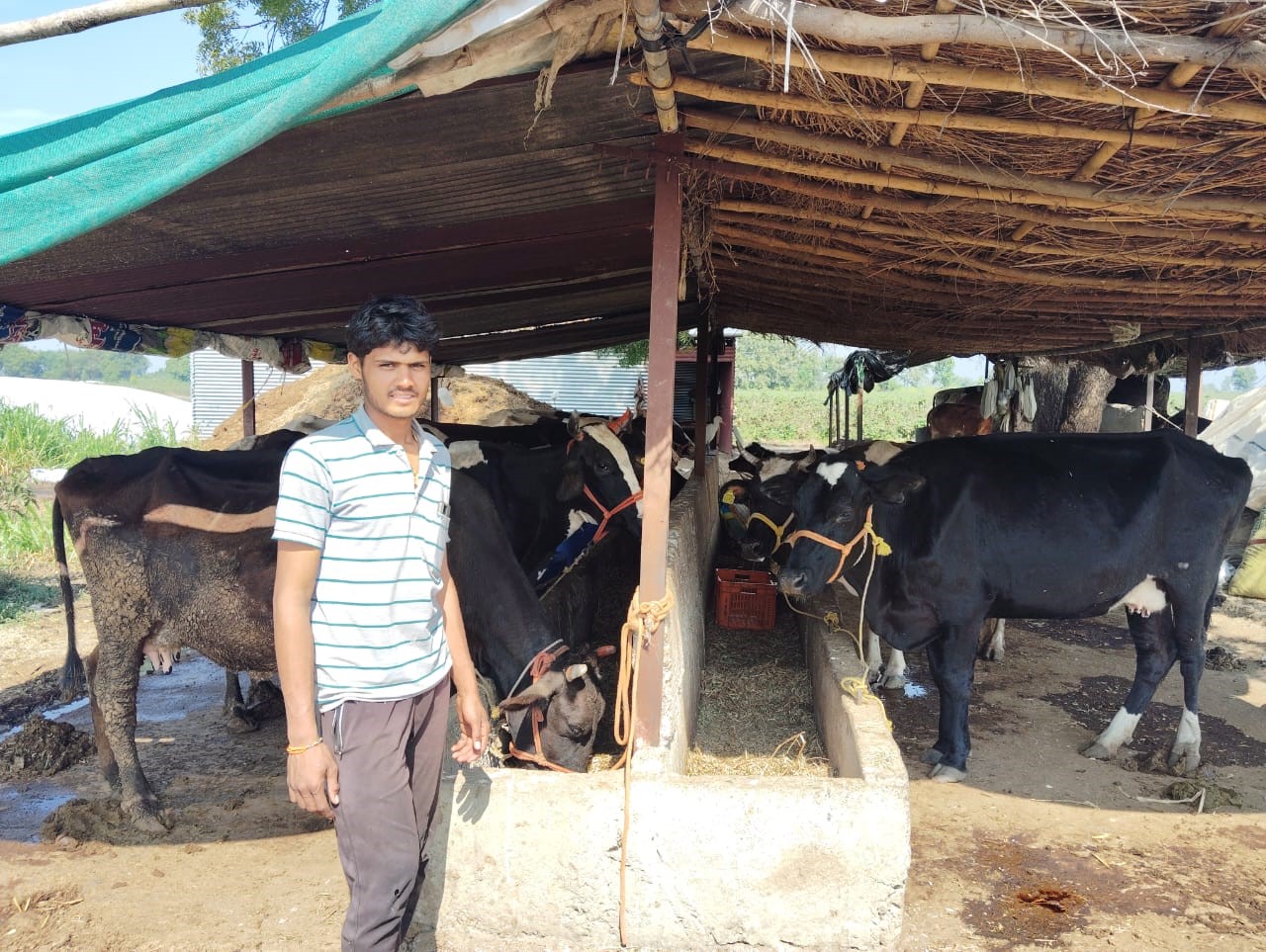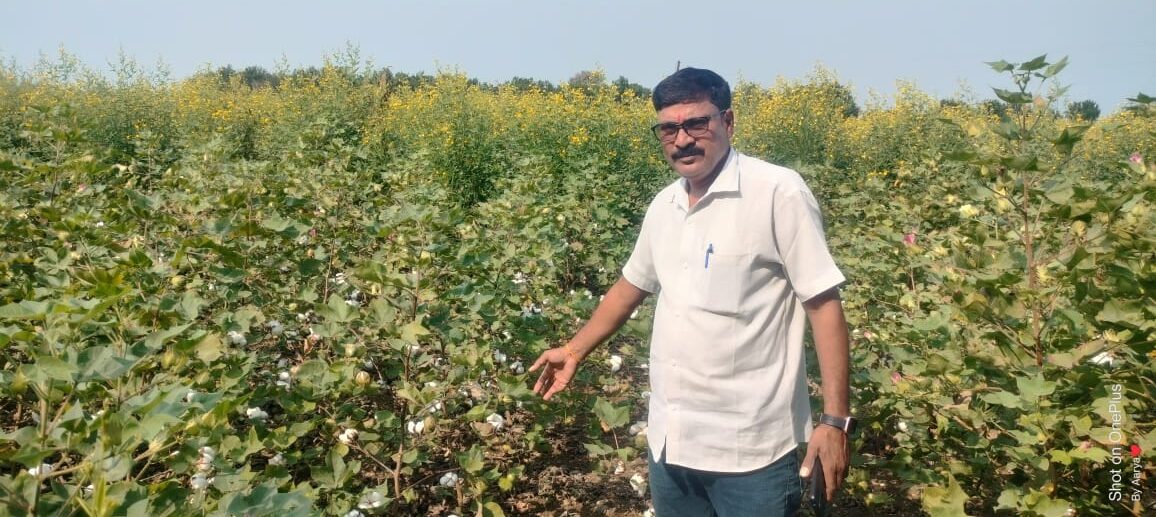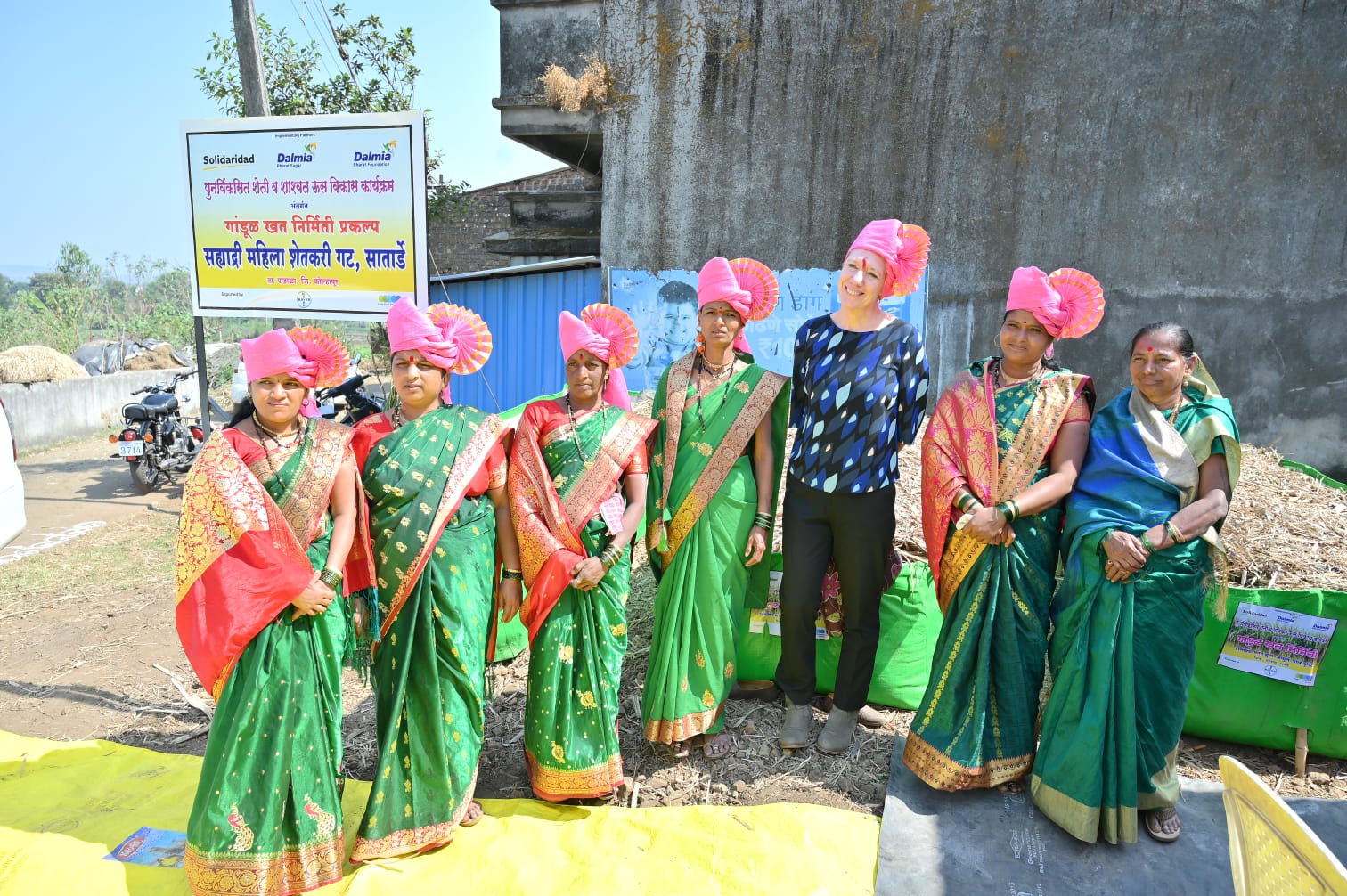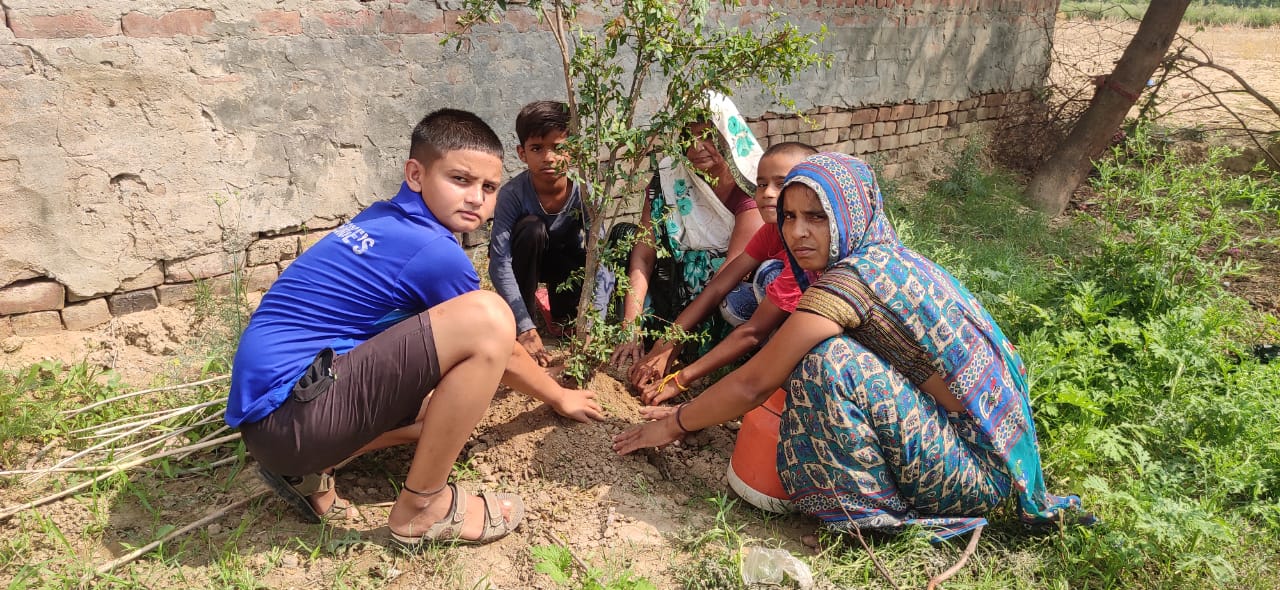Sanjay Keshavrao Kene was finding it difficult to make ends meet as a farmer. The Smart Agri Project came as a ray of hope and completely changed his fortunes. Here’s how.
For small-scale farmers in India, the path to adopting good agricultural practices can be steep without access to adequate resources and information. This certainly was the case with Sanjay Keshavrao Kene, a 62-year-old small farmer in Amla Vishweshwar village in Maharashtra’s Amravati district. Owning four acres of land, Sanjay solely relied on cotton cultivation to feed his family of four. The situation was far from ideal.
Says Sanjay, “I used to practise monocropping, and that was the main reason behind my economic plight. Moreover, as I did not know the exact ratio of fertilisers and pesticides to be used on the crop, I applied them in excess. This resulted in crop damage and further financial burden. [Sanjay used to spend as much as ₹7,000–₹8,000 per acre every year on chemical inputs.]” It used to be a similar story for the 7,500 small farmers in the Chandur Railway block who are now part of the Smart Agri Project, a corporate social responsibility (CSR) initiative of the Vodafone Idea Foundation and Indus Towers with Solidaridad as the implementing partner.
The rainfed nature of agriculture, erratic weather conditions, lack of access to information on modern farming practices, and the high cost of agricultural inputs are some of the major problems faced by small farmers in this region.

Smart Agri Project to the rescue
Technology-driven solutions are at the heart of the Smart Agri Project’s efforts to support farmers in their journey towards sustainability and prosperity. Equipment such as the automatic weather station (AWS) and digital tools such as the Smart Agri mobile application (which enables farmers to receive real-time weather updates and agricultural advisories on a weekly basis) are crucial components of the project. Additionally, the programme also features different kinds of training on regenerative agricultural practices, weekly shetishalas (farmer schools) and exposure visits to the fields of farmers practising sustainable agriculture.
These interventions have been benefitting Sanjay and 700 other families in his village since 2021. “Agriculture-related information is now just a call away (besides the Smart Agri app, farmers can access information through a missed-call service). The detailed agricultural advisories contain localised weather-related information and suggestions on how to prepare low-cost natural inputs. These advisories also tell us the ratio in which fertilisers should be applied to the crops, reducing production costs,” he explains. Due to timely crop and weather advisories, Sanjay could plan his cropping activities (sowing, irrigating, etc.) better and reduce his farm expenses by as much as 25 per cent.
Sanjay received training in integrated pest and nutrient management, composting practices (such as vermicomposting and making compost from manure and cotton stubble) and preparing crop-protection products such as neem ark, dashaparni ark and jeevamrut. “The Smart Agri Project came as a ray of hope. The support from the programme has been overwhelming. Solidaridad’s capacity-building activities have empowered me in a true sense. I am an informed farmer now,” Sanjay adds.
“The Smart Agri Project represents a paradigm shift in farmers’ empowerment. By harnessing the potential and power of IoT-based solutions, comprehensive advisory services and capacity-building programmes, it has not only revolutionised farming practices but also led to a tangible reduction in production costs for farmers. The Smart Agri programme has paved the way for a future where knowledge is the cornerstone of sustainable farming practices,” says Neelima Pahurkar, programme officer, Solidaridad Regional Expertise Centre, Nagpur.
A story of learning and growth
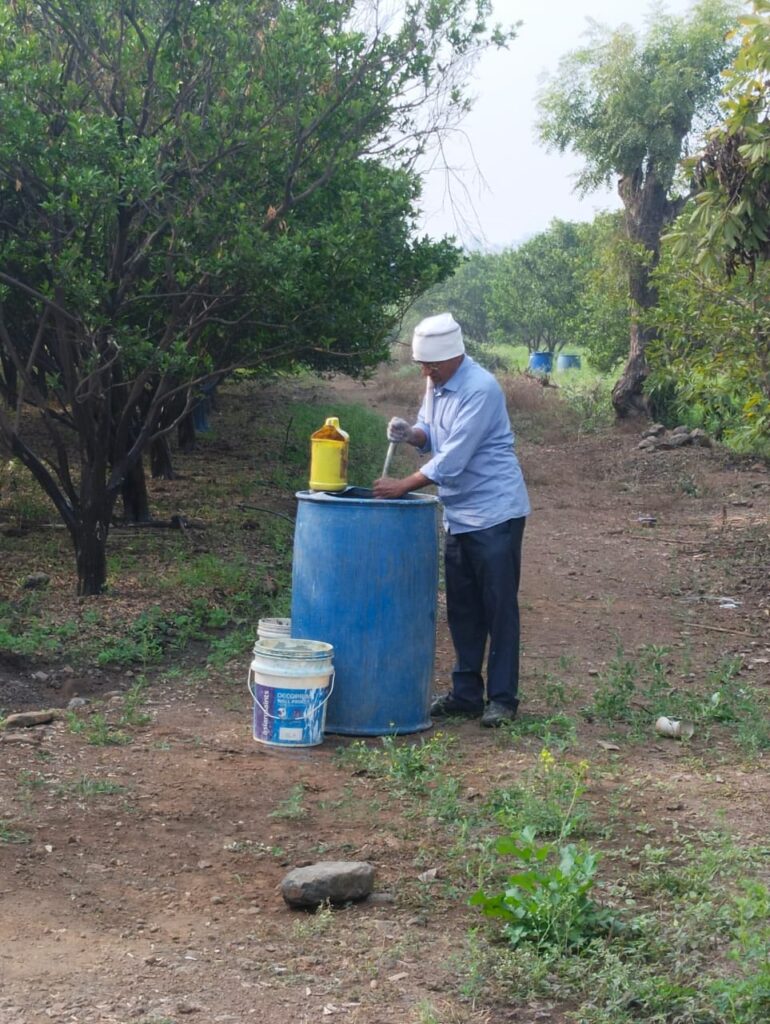
Today, Sanjay is successfully implementing the lessons that he has learned through his association with the Smart Agri Project – and the results are clearly evident. By acting on the technical inputs from the field team, he has set up his own vermicompost unit, and produced 20–25 quintals of the organic fertiliser so far. The application of vermicompost and natural crop-protection products has also helped increase his cotton yield to 8 quintals this season, up from the 5 quintals he got last year, resulting in a profit of ₹20,000. He is also producing other bio-inputs on his farm, such as jeevamrut and waste decomposer liquid (both sourced from cow dung), as well as dashaparni ark. These inputs have enabled Sanjay to drastically reduce his expenditure on chemical sprays he used on his crops previously – saving as much as ₹15,000 in the process. The animal waste from his cattle serves as the key ingredient for the biogas plant, set up on his farm with the support from the project, that is helping him save up on the costs incurred in purchasing gas cylinders.
For disease management in his cotton crop, Sanjay is using pheromone traps to monitor levels of pink bollworm (PBW) and American bollworm (ABW) infestation, and yellow and blue sticky traps for pest management.
In the ongoing rabi season, Sanjay has sown wheat and gram, each in two acres of land. Here too, the Smart Agri Project has supported him through training and regular visits to his field. “As per the suggestions of the team, this time, I did seed treatment prior to sowing. I also followed a proper irrigation schedule, and used vermicompost and vermi-wash in place of chemical fertilisers. I also carried out the appropriate pest control measures. These practices, I am sure, will help me get good results this year,” he says. Sanjay hopes to harvest 7 quintals more wheat than he did the previous year.
Armed with the knowledge on smart farming, Sanjay’s hard work is now yielding improved results. The good news is that he is one of the 2 lakh farmers in Maharashtra who have transformed their lives and fortunes with the help of the Smart Agri Project.


